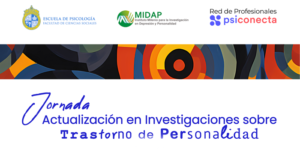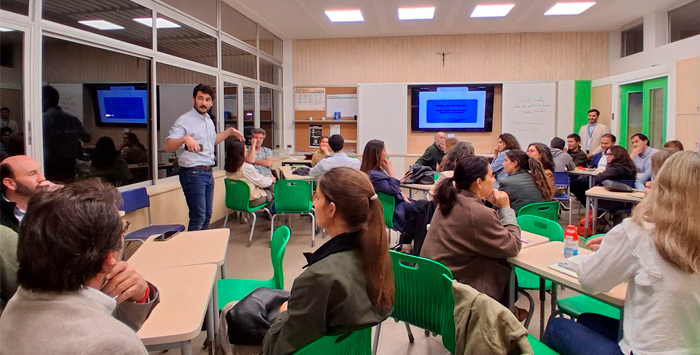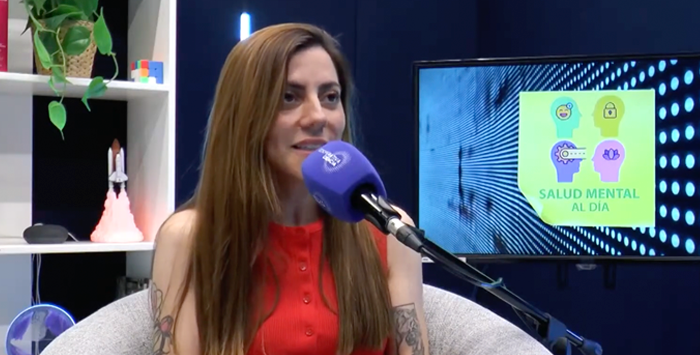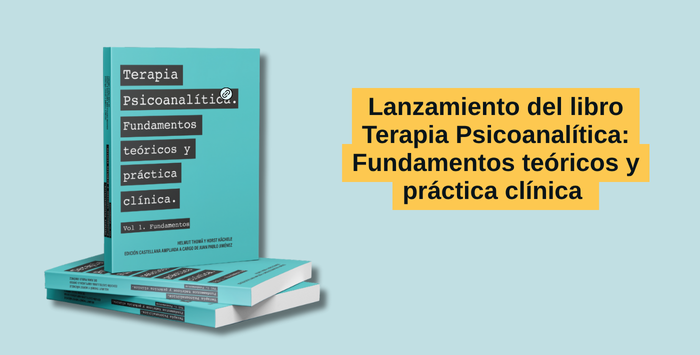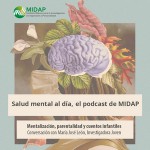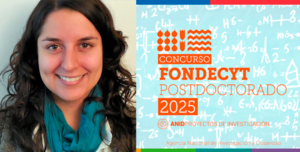
MIDAP researcher awarded ANID postdoctoral funding to further research conducted under the Institute
Pamela Franco will continue to research the implications of "Mom, I Understand You," an online intervention she developed based on a web application aimed at preventing and treating symptoms associated with postpartum depression. "In our pilot study, it proved to be feasible and well-accepted, which motivates us to now evaluate its short- and medium-term efficacy in a large-scale randomized clinical trial," she says. This is yet another recognition of her work, dedication, and ingenuity. Pamela Franco, a graduate of the PhD program in Psychotherapy from the Catholic University, who last December received the UC Doctoral Thesis Excellence Award in the area of Social Sciences, will be able to continue the research for which she was awarded, after being awarded an ANID postdoctoral grant. As part of her doctoral thesis, entitled "Guided Internet-Based Intervention for Postpartum Depression Symptoms: Development and Feasibility Trial," the researcher developed "Mom, I Understand You," an online intervention based on a web application whose purpose is to prevent and treat symptoms associated with postpartum depression. In this context, the resources granted will allow this initiative to expand its reach, shedding greater light on its benefits, says the UC psychologist, who says she received the news "with great joy and pride, because it means the opportunity to continue developing as a researcher, and because it will allow us to continue a project into which we have put a lot of effort and heart." "Mom, I Understand You is an intervention in which we deeply believe. And this funding gives us the possibility to expand it and evaluate its effectiveness on a large scale. Furthermore, I see it as recognition of the previous work and the impact this project can have on maternal mental health in Chile," she maintains. According to her, the high prevalence of postpartum depression and the barriers to accessing treatment make it urgent to develop accessible and cost-effective interventions. In that sense, this project represents a major innovation in mental health that could ultimately benefit thousands of people. “Health technologies offer a great opportunity. This is a psychological intervention designed specifically for postpartum women with depressive symptoms. It is based on cognitive-behavioral therapy and integrates elements of mentalization and attachment. The intervention presents content structured into modules and interactive exercises with feedback from clinical psychologists,” explains the doctor of psychotherapy. “In our pilot study, 'Mom, I Understand You' proved to be feasible and well-accepted, which motivates us to now evaluate its short- and medium-term efficacy in a large-scale randomized clinical trial. In this study, we will recruit 200 postpartum mothers from various health centers in Chile, who will be randomly assigned to either the intervention or a waiting list group. We will evaluate its impact on symptoms of depression, anxiety, perceptions of the mother-infant bond, and maternal self-efficacy. If the results are positive, this study could lay the groundwork for its future integration into the Chilean health system,” she adds. But there is still a long way to go. Pamela Franco's postdoctoral fellowship will last three years, a period during which the clinical trial will be a fundamental part of the research given the complexity and time required for this type of study. Nevertheless, expectations are optimistic. “Our experience with the pilot study has shown us that there is a high level of interest in this type of intervention. We hope this interest will continue and facilitate the recruitment of participants,” she states. “This is the first evaluation in Chile and Latin America of a locally developed digital psychological intervention for postpartum depressive symptoms. If this project proves effective, it could become a flexible, accessible, and low-cost tool for the prevention and treatment of postpartum depression. In the long term, our goal would be to integrate it into the healthcare system and evaluate its impact at the population level,” she comments. Pamela Franco completed her undergraduate, master's, and doctoral degrees at the Catholic University of Chile (UC), and emphasizes the importance of her school of study in developing a career full of contributions. “The UC School of Psychology has been my educational center, and from my early years, I have had a strong interest in both clinical and research work. My first exposure to research was as an assistant on a project during my undergraduate studies, which marked my path and consolidated my interest in this area,” says the psychologist, who is particularly grateful for the support of Professor Marcia Olhaberry, principal investigator of MIDAP. “Working with Marcia on my PhD was an enriching experience, and I'm thrilled to continue collaborating with her in this new phase. The School has been key to my development as a researcher, providing me with tools and opportunities to grow along the way,” she emphasizes. Source: Nicolás Pérez Lozano, UC Psychology Communications.

